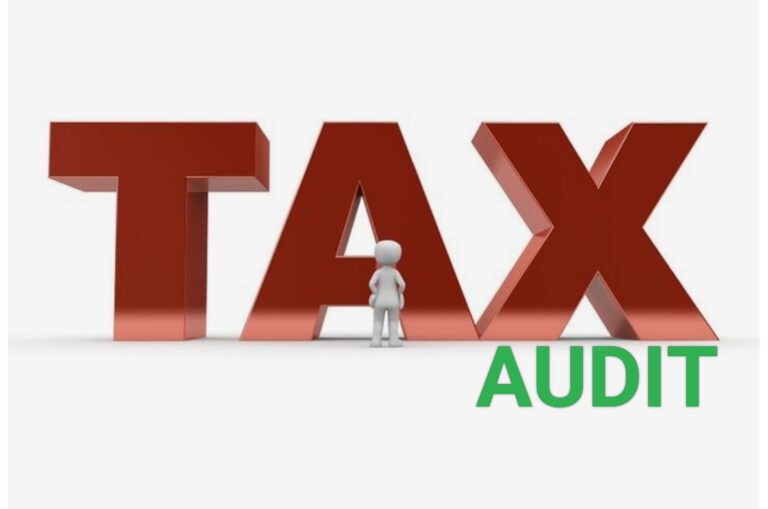📌 Introduction
A tax audit is a compulsory examination of accounts of a business or profession carried out under Section 44AB of the Income Tax Act, 1961. For small businesses, tax audits ensure accuracy in reporting income, expenses, and compliance with various tax laws. It helps prevent penalties, establishes credibility with banks and investors, and safeguards the business from scrutiny by tax authorities.
Small businesses often face challenges such as maintaining proper books, reconciling GST/TDS data, and ensuring cash transaction compliance. A well-prepared audit checklist can simplify the process, reduce errors, and ensure timely completion of statutory requirements.
Here are some practical tax audit tips for small businesses that can help you stay compliant, reduce risk, and avoid penalties:
🔹 1. Maintain Proper Books of Accounts
- Use accounting software (like Tally, Zoho, QuickBooks, etc.) for accurate records.
- Ensure ledgers, vouchers, and invoices are properly numbered and stored.
- Keep a digital backup of all records.
🔹 2. Track Cash Transactions Carefully
- Avoid large cash dealings—prefer banking channels (NEFT, RTGS, UPI, etc.).
- Comply with limits under Income Tax Act (e.g., Sec. 40A(3): cash payment > ₹10,000 not allowed).
- Maintain a cash book with daily balancing.
🔹 3. Check Turnover & Applicability
- Tax audit under Sec. 44AB is required if turnover crosses:
- ₹1 crore (business)
- ₹10 crore if 95%+ transactions are digital
- ₹50 lakh (professionals)
- Small businesses under presumptive taxation (Sec. 44AD) may still fall under audit if conditions are not met.
🔹 4. Reconcile with 26AS, AIS & GST
- Match sales, TDS credits, and turnover reported in Form 26AS/AIS with books.
- Ensure GST returns (GSTR-3B/1) match with sales and purchase accounts.
- Correct mismatches before audit to avoid notices.
🔹 5. Verify Expenses & Deductions
- Check that expenses are supported with bills/invoices.
- Disallow personal expenses booked in business.
- Watch for common disallowances (like excess interest to relatives, cash payments).
🔹 6. Review Depreciation & Fixed Assets
- Maintain a proper fixed asset register.
- Apply correct depreciation rates as per Income Tax Act.
- Verify addition/deletion of assets during the year.
🔹 7. Keep Compliance Proofs Handy
- TDS/TCS returns filed & challans paid on time.
- PF/ESI/GST returns properly filed.
- Bank statements, loan documents, and agreements updated.
🔹 8. Prepare for Queries
Auditors may ask for:
- Loan confirmations from lenders.
- Debtors/creditors balances with confirmations.
- Stock valuation details at year-end.
🔹 9. Plan for Presumptive Tax Schemes
- If under Sec. 44AD/44ADA, keep turnover proofs (bank statements, GST returns).
- Remember: opting out and back in has restrictions.
🔹 10. File Tax Audit Report on Time
- Due date: 30th September (for AY 2025–26, unless extended).
- Penalty for non-filing: 0.5% of turnover (max ₹1.5 lakh).
✅ Pro Tip: Start preparing early instead of waiting till deadline—most mistakes happen in last-minute rush.
Here’s a ready-to-use Tax Audit Checklist for Small Businesses under Sec. 44AB:
📝 Tax Audit Checklist for Small Businesses
🔹 A. Basic Information
- PAN, TAN, GSTIN, CIN/Registration certificates
- Nature of business, address, ownership details
- Tax audit applicability checked (turnover/profession limit)
🔹 B. Books & Accounts
- Cash book maintained and reconciled
- Bank books reconciled with bank statements
- Sales & purchase registers maintained
- Ledger balances checked and tallied
- Digital backup of books available
🔹 C. Income Verification
- Turnover as per books matches GST returns
- Turnover reconciled with 26AS/AIS data
- Other income (interest, rent, etc.) recorded properly
🔹 D. Expenses & Deductions
- Expenses supported with bills/vouchers
- No personal expenses booked in business
- Cash payments > ₹10,000 disallowed (Sec. 40A(3))
- Interest/loan transactions with relatives within Sec. 40A(2)(b) limits
- Employee-related payments (salary, PF, ESI) paid & recorded
🔹 E. Fixed Assets & Depreciation
- Fixed Asset Register maintained
- Depreciation calculated as per Income Tax Act
- Additions/deletions during the year verified
- Proofs for purchase/sale of assets kept
🔹 F. TDS/TCS Compliance
- TDS deducted wherever applicable (salary, contractors, rent, etc.)
- TDS deposited within due dates
- TDS returns filed for all quarters
- TCS applicability checked (if turnover > ₹10 crore)
🔹 G. GST Reconciliation
- GST returns (GSTR-1 & 3B) filed on time
- GST turnover matches books of accounts
- Input tax credit (ITC) claimed as per GSTR-2B
- GST payments made within due dates
🔹 H. Loans, Advances & Investments
- Loan confirmations obtained from lenders/borrowers
- Interest accounted properly
- Sec. 269SS/269T (cash loan/deposit > ₹20,000) not violated
- Related party transactions properly disclosed
🔹 I. Stock & Inventory
- Closing stock physically verified
- Method of valuation consistent with past years
- Work-in-progress valuation supported by records
🔹 J. Final Reporting & Filing
- Form 3CD (Tax Audit Report) filled correctly
- Form 3CA/3CB prepared & signed
- Tax Audit Report uploaded before due date (30th Sept)
- ITR filed after attaching audit report
✅ Quick Tip for Small Businesses: Prepare a “Tax Audit File” with the following sections – Books, Bank, GST, TDS, Assets, Loans, Stock, Final Reports. This saves time during auditor queries.
